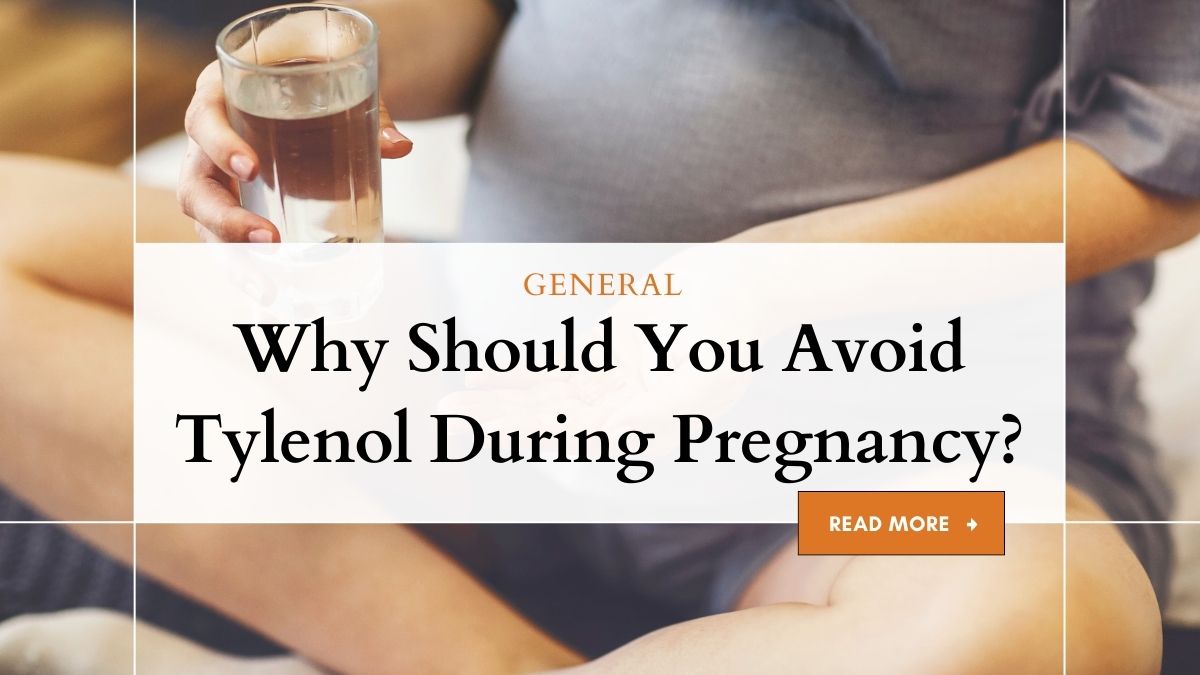
Pregnancy is an uncomfortable time: it seems that the aches and pains are endless, with everything from back pain to sore hips and swollen ankles. You’re tired and nauseous all the time, not to mention worried about having a safe delivery and avoiding birth complications.
You might think that a simple over-the-counter medication like acetaminophen, commonly known by its brand name Tylenol, is an easy and safe way to banish the discomfort and stay active, but this can be a dangerous mistake.
Today, we’ll discuss why you should avoid taking Tylenol while pregnant, as well as safe and non-pharmaceutical ways to reduce discomfort associated with pregnancy.
Also, you can able to know,
Tylenol is Associated With Serious Developmental Disorders in Children
Growing medical consensus suggests that Tylenol can increase the risk of a child developing autism spectrum disorder (ASD) and Attention Deficit Hyperactivity Disorder (ADHD) when they are exposed to it during pregnancy.
In 2021, the medical journal Nature Reviews Endocrinology released a Consensus Statement from its editorial staff, urging caution when recommending acetaminophen for pregnant women, giving the risk of offspring developing attention disorders and developmental delays.
This correlates with a 2022 study published in the National Institute of Health’s journal PLoS One, which found a significant correlation between antenatal exposure to Tylenol and both sleep disturbances and behavioral issues in three-year-old children.
However, there are other concerns related to Tylenol use during pregnancy, as acetaminophen disrupts the endocrine system.
This can cause reproductive concerns and birth defects in children, including early puberty, low sperm count in males, and undescended testicles.
Concerning as all this is, it’s important to note that research is ongoing, and many obstetricians still recommend acetaminophen as one of the only safe over-the-counter medications for pregnant women.
Other Options for Pain Relief During Pregnancy
It’s frustrating to consider that you have to go your whole pregnancy without any pain relief, but thankfully, there are other options that can assist you without causing harm to your developing child.
One popular option is prenatal massage, which can reduce tightness and swelling, as well as sore muscles.
This is a great option if you’re experiencing tight hips or back pain, as the masseuse is specially trained to provide safe and effective pain relief.
Acupuncture is another great solution, as it’s safe and effective. A systematic review found that only 1.9% of those using acupuncture during pregnancy experienced any adverse effects, and these were generally mild, such as bleeding at the insertion site.
This complementary medicine can assist with morning sickness, swelling, depression, headaches, sleep problems, and lower back pain.
If you’re sore and uncomfortable, the tried-and-true Epsom salt bath is an excellent option which has almost no side effects in most people.
What Should You Do if Your Child Develops Autism After Exposure to Tylenol?
Of course, your first concern upon your child receiving an autism or ADHD diagnosis is to get your child the help they need to thrive with their diagnosis.
However, therapies for these developmental issues can be incredibly expensive, and some may not be covered by your health insurance.
If your child is diagnosed with autism and you have a documented use of Tylenol during your pregnancy, you can protect your legal rights by filing a lawsuit against the distributors or manufacturers of acetaminophen.
Tylenol lawsuits are generally focused more on the distributors of the medicine, such as Safeway, Walmart, CVS, and Walgreens, for failing to warn pregnant women about the potential harms of using acetaminophen.
If you choose to pursue a lawsuit, you may be able to receive compensation to help pay for the cost of your child’s therapies and adaptive needs, as well as to pay for the pain and suffering caused by this diagnosis.
However, it’s not just about you: by advocating for yourself and your child, you can help to change the common assumption that Tylenol is safe during pregnancy.
This can pressure drug manufacturers to include warning labels on their drugs, which will protect other children from developing neurodevelopmental disorders from the use of acetaminophen.
Though it can be difficult to go through a lawsuit as you raise a small child, it can make a huge difference in the lives of others and get you the compensation you deserve.
The bottom line
It’s important to note that the research on the link between antenatal exposure to Tylenol and neurodevelopmental disorders is still being researched, and it’s not exactly clear what – if any – dosage of acetaminophen is safe to take during pregnancy.
While you should avoid it if at all possible and instead seek natural pain relief solutions, sometimes you might find it necessary to take.
In that instance, always follow the advice of your obstetrician or primary care physician, and only use as much as necessary to provide relief.














